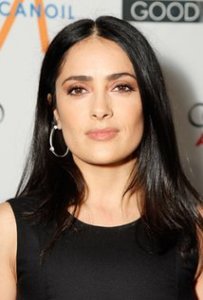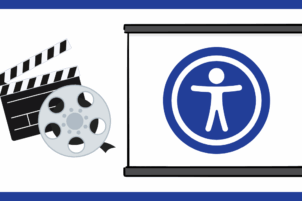Honoring Women with Disabilities During Women’s History Month
Actress and producer Salma Hayek Jiménez has embraced her disability – dyslexia – from a very young age. Born in Mexico, Hayek was sent to a Catholic boarding school in New Orleans at the age of 12 where she was quickly expelled for setting all of the nun’s clocks back three hours.
“I’m very lucky I didn’t have it easy, because I’ve learned so much from having to figure out everything on my own and create things for myself,” said Hayek. “Now I can teach what I’ve learned to the next generation.”
After boarding school, Hayek spent time at the Universidad Iberoamericana in Mexico City; however, she quit to pursue her acting career and left Mexico for Hollywood.
“I came here and I didn’t speak English, I didn’t have a green card, I didn’t know I had to have an agent, I couldn’t drive, I was dyslexic,” she said in an interview with Oprah.
But Hayek did not let any of that stop her. She adjusted. Reading scripts more slowly due to her dyslexia and working on her memorization skills so she would only have to read the lines once, she landed parts in major films such as Fools Rush In and Will Smith’s Wild Wild West.
“Some people read really fast, but you’ll ask them questions about the script and they’ll forget. I take a long time to read a script, but I read it only once,” said Hayek.
Over the course of her first ten years in the business, she saw a lack of Latina representation in Hollywood and set out to fill the gap. In 2000, Hayek opened Ventanarosa Productions. The first film her company produced was about Mexican painter Frida Kahlo (played by Hayek), who also had a disability. The film was nominated for six Academy Awards, including best actress.
While studies show many people within the Latino and other communities hide their invisible disability due to negative stigmas, Hayek is passionate about diversity and women’s rights and uses her voice to share her story of learning and living with dyslexia. Therefore, she is the perfect candidate for RespectAbility’s #RespectTheAbility campaign, which is shining a light on individuals with disabilities who are succeeding in their chosen careers.
Just 34.6 Percent of Working-Age Women with Disabilities Are Employed
More than 20.9 million women live with a disability in the U.S., including more than 10.2 million of which are working-age (18-64).
Hayek is one of the most prominent Latinas to disclose they are living with a disability. Fully one-in-five Americans have a disability and studies show that most of them want to work. Yet 70 percent of working-age Americans with disabilities are outside of the workforce. Only 34.6 percent of working-age women with disabilities (3.5 million) are employed in the U.S. compared to 82.5 percent of working-age women without disabilities. This is in line with the rest of the country, with fully one-in-four American adults having a disability just 37 percent of those who are working-age being employed, despite polls showing that most of them want to work. This leads to approximately 22.6 percent of women with disabilities living in poverty compared to 14.7 percent of women without disabilities.
There are more than 5,193,522 Latinx/Hispanics living with a disability in the U.S. Out of more than 2,887,953 working-age Latinx/Hispanics with disabilities, barely 1,114,614 have jobs. Just 38.6 percent of Latinx/Hispanic Americans with disabilities ages 18-64 living in the community have a job, compared to 79.1 percent of Latinx/Hispanics without disabilities. Hayek is proof that this does not have to be the norm.
Leading the Way
Our nation’s economy is strongest when it is inclusive of the value that diverse talent brings to the workplace. Haben Girma became the first Deafblind person to graduate from law school when she earned her degree from Harvard Law School in 2013.Harriet Tubman had epilepsy, performer Selena Gomez lives with lupus, business leader and Shark Tank superstar Barbara Corcoran is dyslexic and gymnast Simone Biles has ADHD. Each of them, like Hayek, is a positive role model for success.
Today Hayek focuses her time on ending violence against women and sits on the board of a nonprofit called V-Day. She also started a campaign with Beyoncé, fashion designer Frida Giannini and Gucci to advocate for the empowerment of women.
“You’ve got to take who you are and love who you are and do the best you can with what you’ve got,” said Hayek.
Research assistance from RespectAbility Fellow Julia Wood.









